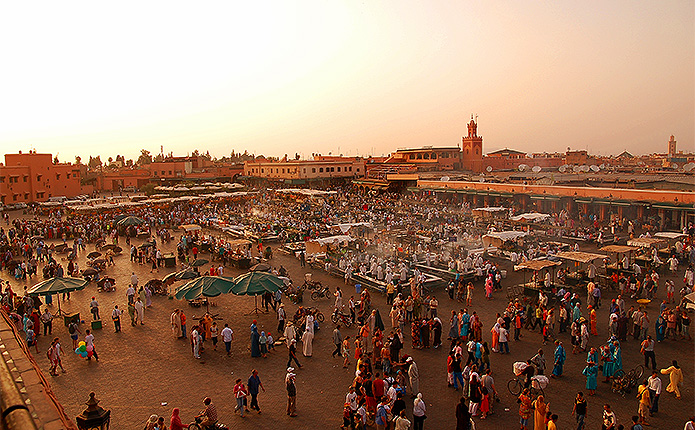

It is highly crucial to begin this article by the following point which not many people are aware of, but is perhaps one of the most decisive moments in Muslim history: the role played by…


...in order to know or appreciate most developments of Muslim society and civilization, or to understand the very foundations of Islamic society and civilization, we have to go to the very early history of Islam.…


Nothing contrasts more the discrepancies in learning as the place of books. When Muslim libraries abounded with books, some containing even tens of thousands, and where students, scholars and any curious mind found a place,…
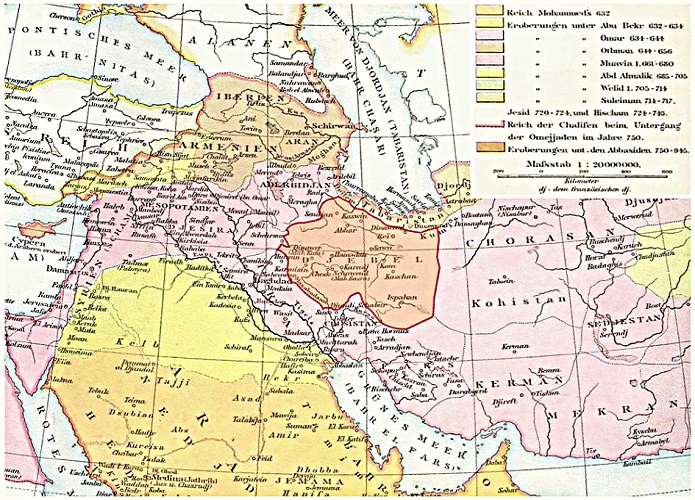

Rayy was a city in the old Persian region of Media, during the Islamic times in the province of Djibal...
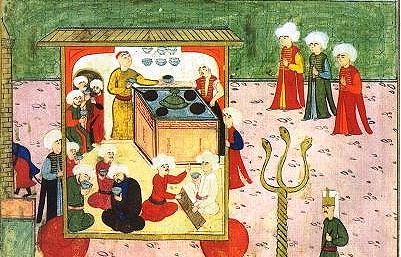

The history of coffee goes at least as far back as the 9th century. From Eastern Africa, coffee spread to Egypt and Yemen. The earliest credible evidence for either coffee drinking or knowledge of the…
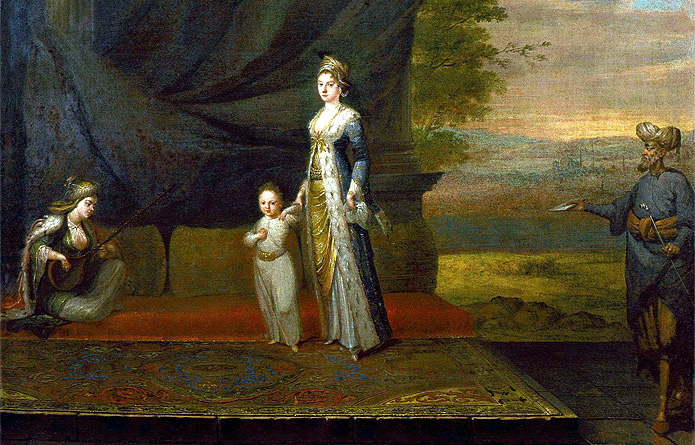

The English aristocrat and writer Lady Mary Wortley Montagu (1689-1762) is today remembered particularly for her letters from Turkey, an early example of a secular work by a Western woman about the Muslim Orient. When…


Piri Reis is a well known Ottoman-Turkish admiral, geographer and cartographer from the 16th century. His famous world map compiled in 1513 and discovered in 1929 at Topkapi Palace in Istanbul is the oldest known…


The history of the Islamic west offers glorious pages of contribution to world history in various fields. This article presents a survey on some salient aspects of the role played by Morocco in the civilisation…


Recent scholarly interest in the genesis of social sciences in Islamic culture is a noteworthy shift. Until recent times, the development of these fields was credited exclusively to the modern Western tradition, especially to the…


Halab [said Al-Muqaddasi, in 985] is an excellent, pleasant and well fortified city, the inhabitants of which are cultured and rich, and endowed with understanding. The city is populous and built of stone, standing in…


Seville was also a centre Medical expertise in Islamic civilisation. Continuing the Muslim scientific tradition of critical works that advance knowledge in Medicine, many books were written here by leaders of the field.


In Seville, scholars led the science of astronomy, criticising earlier works on the basis of new observations and poetry was used to help people memorise the principles of algebra.


Seville was a key centre of Islamic Civilisation in Spain. Here you can read about the architect of the famous Giralda tower of Seville's cathedral, which is originally the main tower of the mosque. Also…


Malaga was a great centre for agriculture and trade and was a part of Islamic Spain for nearly 800 years. Its scholars briefly looked at here included experts on trade and public regulations and arguably…


Toledo was the first major contact of Christian Europe with Islamic civilisation and it was the beginning of a transformation that would transform barbaric Europe into the leading civilisation in the world. In this short…


The city of Baghdad was founded under the second Abbasid caliph Al-Mansur (ruled 754-775). After a lengthy research along the course of the Tigris as far north as Mosul, he decided to construct a palace…


The scholarship within Cairo was one which flourished with great vibrancy. The schoalrs contributed to the fields of mathematics, science, astronomy, philosophy, medicine and numerous other areas which are notable and worthy of study.


Al-Razi was "a writer of rare and incredible productiveness as well as the greatest clinician of Islam." The great works of Al-Razi are of immense significance in the study of medicine.


Jerusalem prior to the crusades was a place filled with a thriving trade, scholars and magnificant architectural works. This is notably significant in any study of Muslims contribution to the advancement of Jerusalem.


Hama is famed for its huge water wheels and it produced great scholars in geography, mathematics, medicine and much more. Here we look at a few of them.
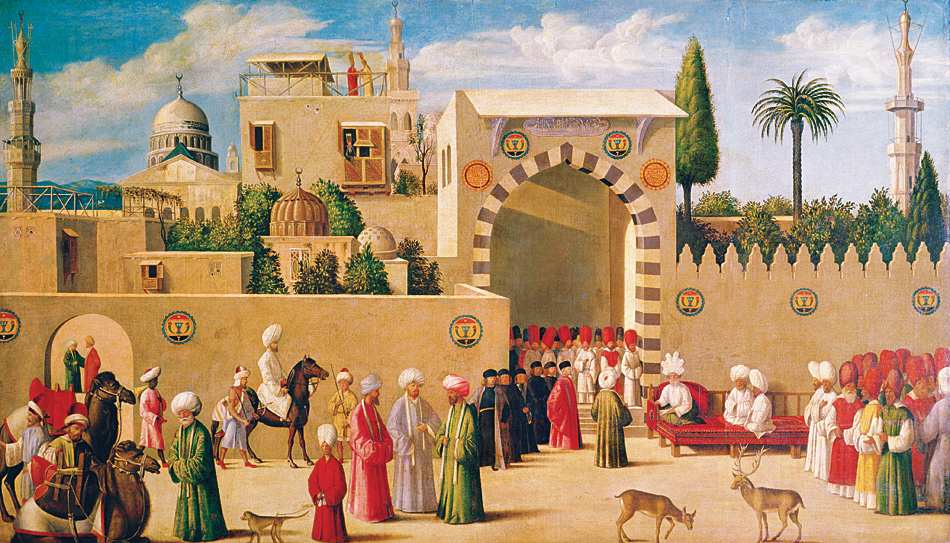

Hospitals, grand public buildings and numerous public endowment based charities characterised the generosity of Damascus. These institutions inspired the innovations and new learning which developed there.
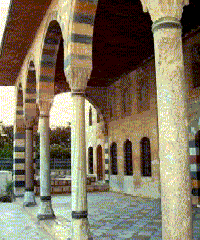

Scholars of Damascus specialised in numerous fields including medicine, economics and astronomy. Their vast knowledge, discoveries and developments in their fields contributed to the advancement of Damascus.


The works of three prominent scholars are highlighted: Al- Farabi who was keenly interested in the relation between logic and language, Al-Qifti's vast scholarship, ranging from lexicography to medicine and finally al-Adim's historical works are…
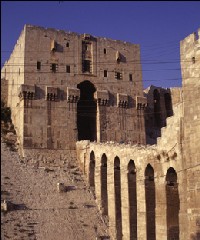

The article describes the works of the following scholars: Al Mahassin: an eminent writer in the field of eye surgery, Al Urdi: the first astronomer associated with Maragha, Al-Lubudi: a physician, mathematician, astronomer and philosopher…


Merv is the city which in medieval times dominated the province of Khurasan in today's Turkmenistan.


Samarkand contributed in particular to the progress of science in astronomy through its observatory. Some of its directors and their achievements are highlighted here.
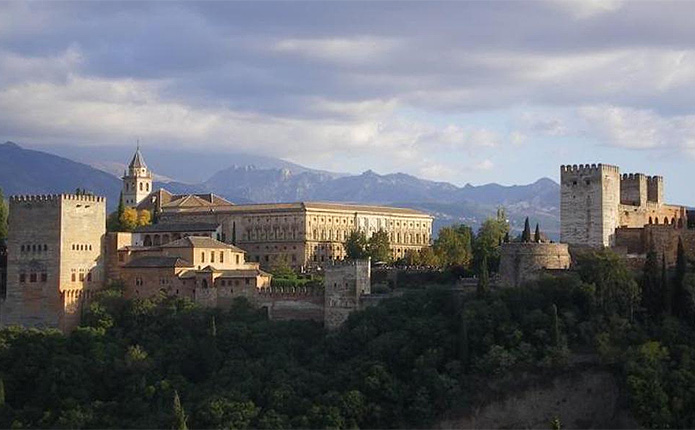

Granada on the southern coast of Spain was to stay in Muslim hands until 1492. Its fall came centuries after other Muslim areas fell to the Christians. This article highlights some of the important legacies…


When the Normans took control of Sicily from the Muslims, they recognised the achievements of Muslims and Muslims together with their institutions continued to have a core role for centuries despite consternation elsewhere.


Sicily under Islamic rule brought people from all over the mediteranean in a rich diverse and enlightened community including a far reaching freedom of religion.


The date of the foundation of Fes is from the early 9th century. Fes soon after received an influx of diverse origins, Berbers, Jews, Arabs, including also Spanish Muslims from Cordoba. A strong scientific tradition…


Most certainly the first English scientist ever was Adelard of Bath. He championed Islamic learning and was the most `Arabist' of all scientists. He and Daniel of Morley were instrumental in the transfer of scientific…


The Aghlabids ruled Tunisia and an area that included Sicily and temporarily Sardinia and regions of southern Italy. Here the role their capital city Qayrawan is highlighted for its important legacy.
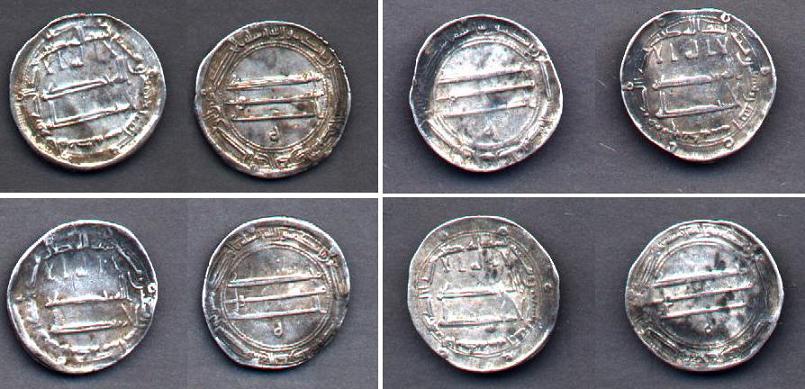

Attacks on Islamic centres of wealth on land and on sea by Western Christian pirates greatly reduced the economic power of Muslim lands. North Africa became economically impoverished as the Trans-Saharan traffic, which had sustained…


Muslims stand responsible for their own decadence. After the early conquests, Islamic rule became very corrupt, and this considerably weakened the caliphate. Islam produced great leaders but also some weak ones, which combined over time…


It is actually a hostility to Berbers and Turks that explains their being blamed for the decadence of Islam. The Seljuk role, it could be said, was in actual fact instrumental in saving whole Islamic…


Why did Islamic civilisation fall into decline? This article seeks to correct some misunderstandings and open the debate about what went wrong and what can be done to put it right.


...it can safely be said that no faith can show as equal sense of brotherhood between diverse colours as in Islam.


Abu Muhammad ‘Ali Ibn Ahmad Ibn Sa’id Ibn HAZM, (November 994 to August 1064) grew up in the period of final collapse of Umayyad rule in Spain, as the nation disintegrated into often conflicting local…


Amongst the English writing authors who can enlighten the reader further on the Islamic impact are Eugene Myers, Metletzki, Turner and Menocal. Here's a list of selected books for further reading on the Impact of…
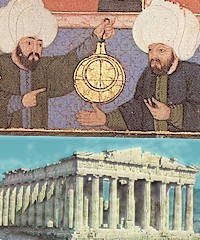

According to some, heritage was lost during the Dark Ages (5th-15th AD) and then recovered during the Renaissance. The real evidence from history shows that where the Greeks had left off, the Muslims had continued…
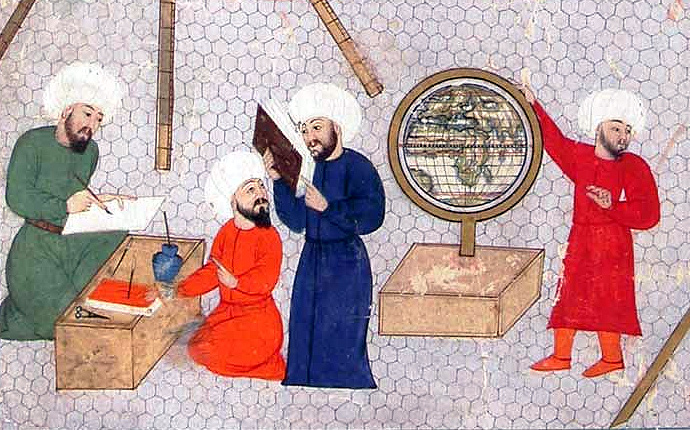

Scholars from all Christian lands rushed to translate Muslim science, and thus start the scientific awakening of Europe. Many of course were Spaniards: John of Seville, Hugh of Santalla, and those working under the patronage…


Local builders employed by the Crusaders revealed the solutions to the problems of construction orally or by demonstration. Talbot Rice points out that in the area dominated by the Seljuk Turks during the Crusades there…


The role of Sicily in the transfer of Muslim science to the West has been well studied by Michelle Amari, but unfortunately the work, although extremely old has remained inaccessible because it is only available…


To go through the Islamic impact on modern science and civilisation in detail demands so vast a book that nobody has written yet. Just some overall observations and points are raised here by the author.
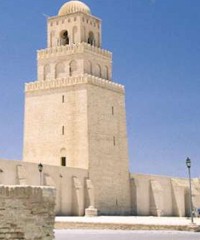

Founded in 670 by Uqba bin Nafi, it was the seat of Arab governors in W Africa until 800. Under the Aghlabid dynasty (800-909), it remained the chief center of commerce and learning. It was…


The centuries termed as the 'Dark Ages' are the missing centuries in history. It is not as one would think that there is nothing about such centuries; as that is far from the truth.


There is a major fallacy in the concept of the 'Dark Ages'. That period coincides exactly with the Muslim apogee. In the midst of Europe's darkness, almost immediately after the fall of the Roman Empire,…


The crucial, most fundamental, difference between Islamic and secular Western science is that Islam and Muslim Civilisation both reached their apogee in the same centuries.
The apparent conflict of science and religion is a uniquely Western creation. Islam, unlike medieval Catholicism, it is observed, 'did nothing to stifle the spirit of scientific enquiry'.


Islam provided such impetus in the era 800-1200. Islam makes self-improvement of the individual and the betterment of society part of religious duty, inspiring individuals in all manners and forms.
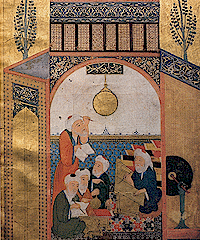

Muslim scholars also realised that understanding the complexities of the universe, its order, harmony, perfection and functioning, brought people close to God and His message.


Whilst scientific truths are very regularly questioned and abandoned, the truths in the Quran are permanent and unchangeable.


Al-Muqaddasi (or Al-Maqdisi), originally from Al-Quds (Jerusalem), hence his name, is by far one of the most instructive of all early Islamic writers on the society of Islam.


Born in Valencia, Ibn Jubair (Ibn Jubayr) travelled widely, offering good accounts of the life of Muslims and their surroundings in both Eastern and Western parts.


In his Rihla/Risala (travel narrative, account or journal), Ibn Fadlan, who in the tenth century, accompanied a mission from the Caliph al-Muktadir to the Volga Bulgars, describes his experiences and the people and places he…


When dealing with Turkish history, whether during the Ottoman period or after, one comes across horrendous claims and errors by countless historians which utterly distort the subject. To try and write correctly Turkish history is…


By far the most multi-ethnic culture and civilisation that had ever existed, the Muslim Scientific community included Jews and Chrisitians.


Dams are required in most hydraulic systems, for irrigation, regulating flow of rivers and in modern times for the production of energy. In the classical Islamic world, dam construction received a special attention as an…


The modern astronomical observatory as a research institute (as opposed to a private observation post as was the case in ancient times) is a creation of the Islamic scientific tradition. Since the early 9th century,…


Al-Battani discovered the notions of trigonometrical ratios used today. Al-Biruni claimed the earth rotated around its own axis. Jabir Ibn Aflah made the first portable celestial sphere to measure and explain the movements of celestial…


It was in Muslim Toledo, Spain, where flocked in the 12th century, in particular, scholars from all Christian lands to translate Muslim science, and start the scientific awakening of Europe.


The period from the 9th century to the 13th century witnessed a fundamental transformation in agriculture that can be characterized as the Islamic green revolution in pre-modern times. The economy established in the Arab and…


Experiment is what differentiates science of Muslim Civilisation from Greek speculation (called science). Experiment began with the Muslims, centuries before the likes of Grosseteste.


The Beijing Olympic Games started on Friday 8 August 2008 with a dramatic opening ceremony featuring a cast of thousands performers that celebrated the arts and achievements of China's long history. Among the tremendous events…


The narration of historical events and the reflexion upon their causes are old scholarly concerns since ancient times. In Islamic culture, a specific Arabic historiographical tradition emerged very early, since the late 7th century, to…


Whilst the period of Antiquity, the time of Greco-Roman civilisation, and the Renaissance receive high praise, the period in between (late fifth to the late fifteenth) is highly obscured. Read about those 1000 years of…


...leading by example, the Prophet made the first institution of Islam, the first mosque he built in Madinah, into an institution of learning.


Abu Hanifa al-Dinawari (d.895 CE), botanist, lived in Iran. His work has been made known by the German scholar, Silberberg, in a thesis, published in Breslau in 1908 which contains the descriptions of about 400…